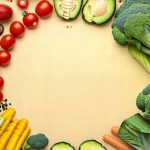Bloating is an incredibly common complaint, impacting many people at some point in their lives. It often manifests as a feeling of fullness, tightness, and even visible abdominal distension. While it can be uncomfortable and sometimes embarrassing, bloating rarely indicates a serious medical problem. However, when accompanied by constipation – the difficulty passing stools or infrequent bowel movements – understanding the connection between these two issues becomes crucial for managing discomfort and promoting digestive health.
Many factors contribute to both bloating and constipation, ranging from dietary choices and hydration levels to lifestyle habits and underlying conditions. The relationship isn’t always straightforward; one doesn’t necessarily cause the other, but they frequently co-occur and can exacerbate each other, creating a frustrating cycle for those experiencing these symptoms. Identifying potential causes and adopting appropriate strategies can significantly improve digestive well-being.
Understanding the Digestive Process
The human digestive system is remarkably complex, relying on coordinated muscle contractions (peristalsis) to move food along the gastrointestinal tract. This process breaks down food into nutrients that our bodies can absorb. When this system functions smoothly, waste products are efficiently eliminated. However, disruptions in motility – the speed at which food moves through the digestive system – can lead to both constipation and bloating. Slowed movement allows more time for gas production by gut bacteria, contributing to bloating, while also resulting in harder stools that are difficult to pass.
The Gut Microbiome’s Role
The trillions of microorganisms residing in our gut – collectively known as the microbiome – play a vital role in digestion and overall health. These bacteria ferment undigested carbohydrates, producing gas as a byproduct. While some gas is normal, an imbalance in the gut microbiome (dysbiosis) can lead to excessive gas production and increased bloating. Furthermore, dysbiosis can impact bowel motility, potentially contributing to constipation. A diverse and healthy microbiome generally supports regular bowel movements and reduces uncomfortable bloating sensations.
Dietary Factors & Bloating-Constipation Link
Certain dietary choices are strongly linked to both bloating and constipation. Low fiber intake is a major contributor to constipation, as fiber adds bulk to stool and helps it move through the digestive tract. Conversely, rapidly increasing fiber intake without adequate hydration can also worsen constipation. Foods known to trigger gas production in susceptible individuals – such as beans, broccoli, cabbage, onions, and carbonated beverages – can exacerbate bloating, particularly when combined with slower gut motility from constipation. Identifying and managing these dietary triggers is often the first step towards relief.
Hydration & Bowel Regularity
Adequate hydration is essential for healthy digestion and regular bowel movements. Water softens stool, making it easier to pass, and supports the overall function of the digestive system. Dehydration can lead to harder stools, worsening constipation and potentially increasing bloating as waste sits longer in the colon. Aiming for sufficient daily water intake – generally around 8 glasses, but individual needs vary – is a simple yet powerful way to support digestive health. Other fluids like herbal teas can also contribute to hydration, while sugary drinks may exacerbate symptoms.
Lifestyle Habits & Digestive Health
Lifestyle factors significantly influence digestive function. Regular physical activity promotes gut motility and helps prevent constipation. Sedentary behavior slows down digestion and increases the risk of both bloating and constipation. Similarly, stress can disrupt digestive processes, leading to irregular bowel movements and increased sensitivity to bloating. Incorporating stress-reducing techniques like meditation or yoga, along with regular exercise, can contribute to a healthier digestive system and improved overall well-being. Paying attention to posture during meals can also aid digestion, as slouching can compress the abdominal organs.
Ultimately, managing both bloating and constipation often requires a holistic approach that addresses dietary habits, hydration levels, lifestyle choices, and potentially, underlying factors affecting gut health. While occasional discomfort is common, persistent or severe symptoms should prompt consultation with a healthcare professional to rule out any underlying medical conditions and receive personalized guidance.


















